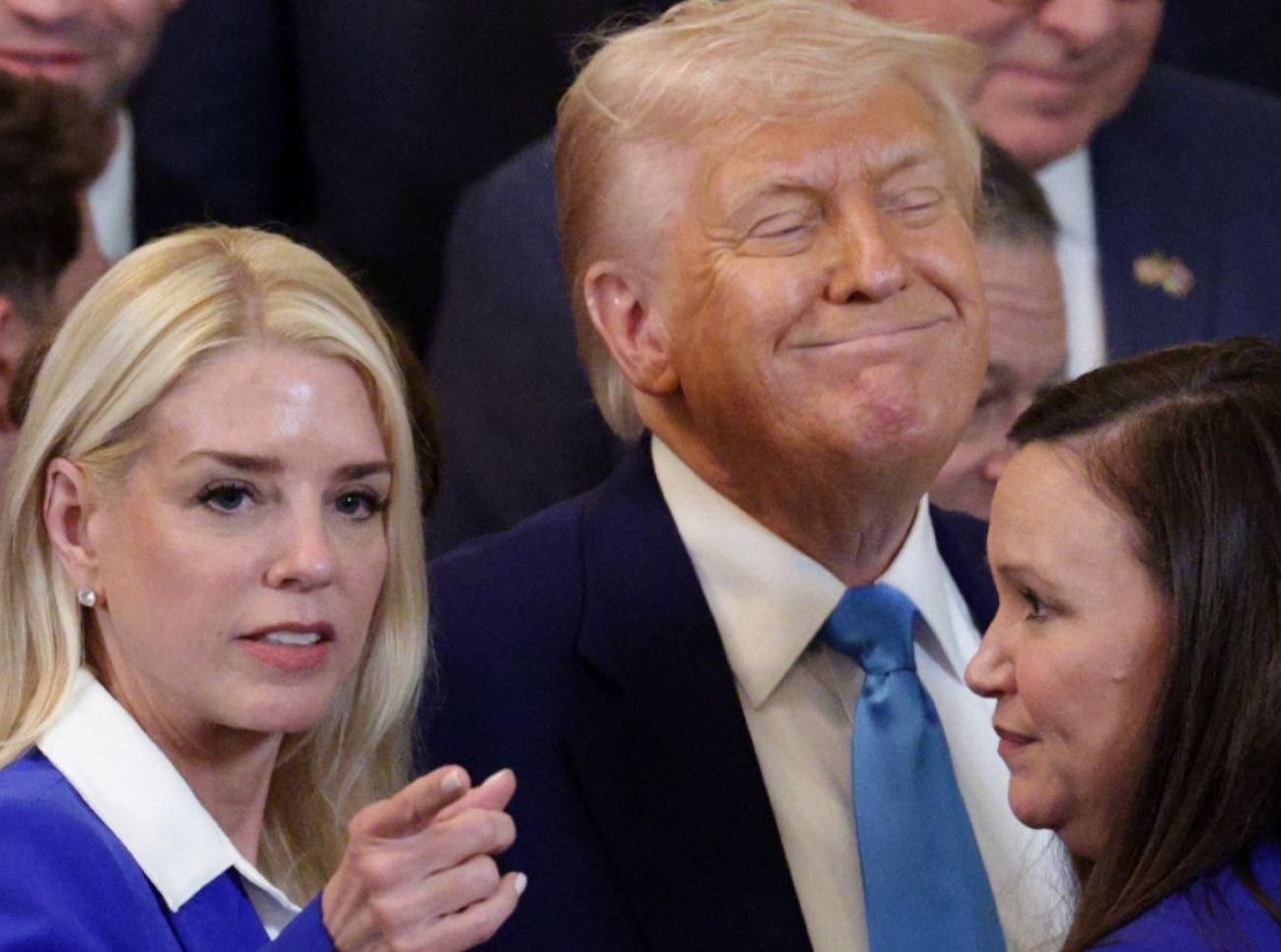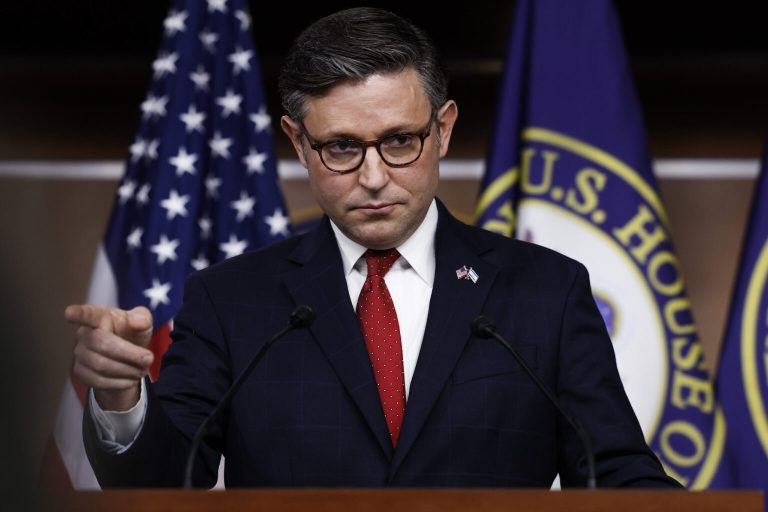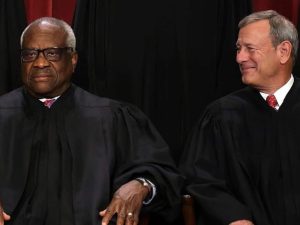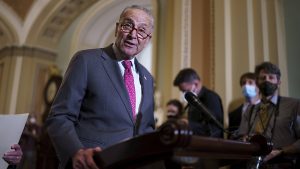Federal Court Backs Trump’s National Guard Deployment to Portland
President Donald Trump scored a major legal win this week after a federal appeals court ruled that he may proceed with plans to deploy National Guard troops to Portland, Oregon, to assist federal law enforcement amid ongoing anti-ICE protests and violent unrest.
In a 2–1 decision, the U.S. Court of Appeals for the Ninth Circuit overturned a lower court’s temporary restraining order (TRO) that had blocked the deployment. The ruling represents the first major appellate endorsement of Trump’s domestic troop deployment authority since his return to office — and a strong rebuke to the district court judge who had warned the move risked a “constitutional crisis.”
The Ruling: Trump Acted Within His Legal Authority
The appellate panel — consisting of Judges Ryan Nelson and Bridget Bade, both appointed by Trump, and one Clinton-era appointee — concluded that the president acted lawfully under 10 U.S.C. §12406(3). That statute authorizes the president to federalize National Guard units when “the United States is invaded, or when rebellion or obstruction makes it impracticable to enforce the laws of the United States by the ordinary course of judicial proceedings.”
Judge Nelson, writing for the majority, emphasized that the executive branch’s judgment in such matters is entitled to “substantial deference.”
“The president lawfully exercised his statutory authority under 10 U.S.C. §12406(3),” Nelson wrote. “The courts should be especially cautious not to second-guess the executive’s assessment of security threats to federal property and personnel.”
Judge Bade joined in full, noting that Congress “explicitly granted the president broad authority to federalize state troops when enforcement of federal law is obstructed.”
A Sharp Reversal of the Lower Court
The decision overturns U.S. District Judge Karin Immergut’s earlier order blocking the deployment. Immergut, an Obama-era appointee, had temporarily halted Trump’s plan, warning that the administration’s justification “strained constitutional limits” and risked “escalating tensions between the federal government and the State of Oregon.”
Her temporary restraining order had been extended just last week while new evidence was being reviewed. The Ninth Circuit’s ruling effectively nullifies that extension, giving the administration an immediate green light to proceed.
According to administration officials, hundreds of National Guard troops are expected to arrive in Portland in the coming days to assist federal agencies, including ICE and the Department of Homeland Security (DHS).
Why the Deployment Was Sought
Solicitor General D. John Sauer, arguing on behalf of the administration, told the panel that the Guard deployment was necessary to “safeguard federal property, assist ICE operations, and protect federal personnel” amid escalating anti-ICE demonstrations that have frequently turned violent.
In recent months, Portland has again become a focal point of national unrest, with protests targeting federal immigration facilities leading to multiple arrests and property damage.
DHS released a statement applauding the ruling, saying it “ensures federal agents can carry out their lawful duties without fear of violence.”
The Dissent: A Warning on Executive Overreach
The lone dissenting judge argued that while the president does possess the power to federalize National Guard troops, the administration had failed to demonstrate that the situation in Portland met the statutory threshold of an ongoing “rebellion or obstruction.”
Legal analysts said the dissent underscored an ongoing debate within the judiciary over how far presidential authority extends when responding to domestic unrest.
Still, the majority opinion’s tone suggested broad judicial deference to executive discretion — especially in matters touching on security and the protection of federal interests.
Oregon Officials Push Back
Oregon Governor Tina Kotek and Attorney General Ellen Rosenblum had both challenged the deployment, calling it an “overreach of federal power into state affairs.” They argued that the National Guard’s involvement would “inflame tensions” and undermine local efforts to maintain peace.
But the Ninth Circuit disagreed, pointing to statutory language that grants the president independent authority to act when local enforcement is deemed inadequate.
“The president’s powers under Title 10 are clear and not dependent on state consent,” the court wrote. “When the federal government determines that local authorities cannot maintain order or protect federal interests, it may act directly.”
That language could have far-reaching implications for future disputes between states and Washington over domestic law enforcement operations.
National Context: Similar Disputes in Chicago and Beyond
The decision comes just days after the administration asked the U.S. Supreme Court to lift a similar block on the president’s plan to deploy National Guard troops to Chicago, where anti-ICE protests have also turned violent.
In that case, the Seventh Circuit Court of Appeals upheld a lower court’s injunction preventing deployment, rejecting the argument that protests there constituted a “rebellion.”
Justice Amy Coney Barrett, who oversees the Seventh Circuit, has not yet issued a decision but ordered Illinois officials to respond to the administration’s petition by Monday.
If the Supreme Court sides with the administration, the combined rulings could effectively establish a new precedent affirming expansive presidential authority to use federalized National Guard forces for domestic security missions — a power rarely tested in modern times.
Inside the Legal Reasoning
The Ninth Circuit’s opinion relied heavily on precedent from prior national emergencies and domestic security challenges. In one section, Judge Nelson cited the Supreme Court’s 1987 decision in Perpich v. Department of Defense, which held that federalized National Guard units operate under presidential command and are “not subject to state veto.”
By invoking that precedent, the panel signaled that state opposition alone cannot override a federal deployment order made under statutory authority.
The court also dismissed claims by Oregon’s attorneys that Trump’s move was politically motivated, calling such arguments “speculative and irrelevant” to the legal question at hand.
Reactions From Both Sides
White House officials hailed the ruling as a “major validation” of the administration’s approach to restoring order in high-risk jurisdictions.
“The president’s duty is to ensure that federal law is enforced and that federal officers can do their jobs safely,” a senior official said. “This ruling confirms he has that authority.”
Supporters of the decision argued that it will deter violence against federal officers and facilities, while critics warned that it could encourage broader use of federal troops in local disputes.
Civil liberties groups have already signaled plans to appeal or seek limits on the administration’s implementation of the order.
“This decision risks normalizing military intervention in domestic law enforcement,” said a spokesperson for the American Civil Liberties Union (ACLU). “The Constitution does not allow the president to deploy troops simply because protests have become inconvenient.”
What Happens Next
According to Pentagon sources, the Oregon National Guard is expected to coordinate with U.S. Marshals Service and DHS personnel within days.
Federal officials have emphasized that the Guard’s mission will focus on protecting federal buildings, not engaging directly with protesters.
Still, state officials remain wary. Governor Kotek said her administration “will continue to explore all legal avenues” to prevent what she described as “federal intrusion into state-managed peacekeeping.”
Meanwhile, legal experts say the Ninth Circuit’s ruling could set up a fast-moving showdown in the Supreme Court if the Oregon state government or advocacy groups file an emergency appeal.
“This decision is significant because it reframes the debate over presidential authority during domestic unrest,” said one constitutional law professor. “The courts are signaling that federal powers may be broader than many assumed — at least when it comes to protecting federal property.”
A Broader Constitutional Debate
For decades, courts have grappled with balancing the president’s authority to respond to civil disorder against state sovereignty. The Posse Comitatus Act of 1878 restricts direct military involvement in domestic law enforcement but explicitly exempts the National Guard when federalized under Title 10.
That legal distinction — between using active-duty troops and federalized Guard units — lies at the heart of this case. By affirming that distinction, the Ninth Circuit has reinforced the president’s ability to act swiftly in times of unrest without state approval.
Whether the Supreme Court ultimately agrees may determine how far future presidents can go in using military support to manage internal crises.
For now, though, Trump’s administration has been given the green light to proceed. The first wave of Guard deployments to Portland could begin as soon as this week.

Sarah Mitchell is a bestselling novelist recognized for her insightful and emotionally resonant stories that explore the complexities of human relationships. Originally from Denver, Colorado, Sarah grew up in a family of teachers who nurtured her curiosity and love for storytelling. She studied psychology at Stanford University, where she became fascinated by the intricacies of human behavior—an interest that would later shape her writing career. Sarah’s novels are praised for their nuanced characters, intricate plots, and ability to capture the subtle tensions that define love, friendship, and family ties. Her breakthrough novel, The Spaces Between Us, became an instant bestseller, lauded for its honest portrayal of strained family relationships and the fragile bonds that hold people together. Since then, she has published several works that continue to captivate audiences around the world. Outside of her writing career, Sarah is passionate about mental health advocacy and often partners with organizations to promote awareness and support for those struggling with emotional well-being. Her personal life is quieter—she enjoys hiking in the Colorado mountains, practicing yoga, and spending time with close friends. With each new book, Sarah Mitchell cements her reputation as a writer who illuminates the beauty and struggles of human connection.









